Distilling Untold History: An Interview With Fawn Weaver, Founder and CEO of Uncle Nearest
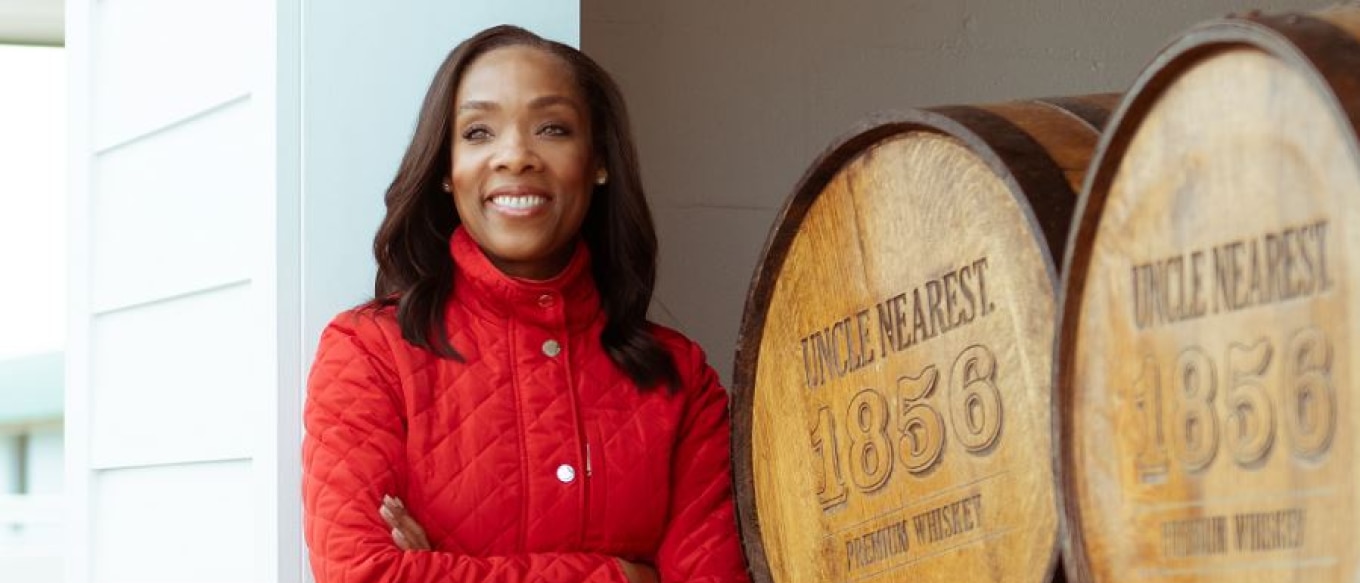 Fawn Weaver, Founder and CEO of Uncle Nearest
Fawn Weaver, Founder and CEO of Uncle NearestIt was a newspaper headline that captured the attention of best-selling author and entrepreneur Fawn Weaver, and ultimately changed the course of her life: “Jack Daniel’s Embraces a Hidden Ingredient: Help From a Slave.”
Her investigation of Nathan “Nearest” Green, the slave-turned-master distiller who taught Jack Daniel how to make whiskey, led her to Lynchburg, Tennessee. What was meant to be a short research trip turned into an adventure that even Weaver says she couldn’t have imagined.
She purchased the 338-acre farm where Nearest and Jack made whiskey, started writing a book that will soon be made into a movie, and launched a whiskey label called Uncle Nearest Green 1856 Premium Aged Whiskey. Weaver is the first woman and African American to lead a spirit brand. She spoke with Goldman Sachs about her entrepreneurial experience and how destiny and diligence have played an important role in her life.
An Unexpected Path
When did you decide to move to Lynchburg, Tennessee?
That wasn't my original plan. I was only scheduled to come for four days. It was my 40th birthday, and I told my husband that’s what I wanted to do, learn more about Nearest Green. One day in the Lynchburg library, Jack Daniel’s eldest living descendant walked through the door.
We had a conversation, and she said she wanted to help me. She pulled out her cell phone and gave me the names and numbers of Nearest’s descendants. She also told me that the farm where Jack grew up and where Nearest distilled whiskey was for sale. What are the chances? Fate played a role in this encounter.
The property had been on the market for 15 months. The original gristmill and spring water source are still there. Once we bought the farm, we needed to go about restoring it, which is why I moved here. It also made sense to use the space to conduct my research.
A Bigger Story
Why did you start a whiskey company?
Nearest Green was the first African American master distiller, yet his name wasn’t on a label. Initially, we thought of creating a commemorative bottle to honor his legacy, but as time progressed, it became clear that his story was bigger than we realized and especially important in this current moment and climate.
The relationship between Nearest and Jack was of friendship, mentorship, love, honor, and respect. I believed the story needed to be told and amplified. Through that process, it went from being a book, movie, or commemorative bottle to something that is now a lifetime project.
What has been your experience in the whiskey business?
Once I got into this industry, I discovered there has never been an African American to lead a major spirit company. That’s insane! And there has never been a Black woman to succeed in this industry at the highest level.
I did not understand why when I showed up at events that young Black women would cry and say they never thought they would see someone like themselves in this business or type of role. I realized how important it is for young people of color to be part of one of America’s native industries. We only have so many native industries in America, and whiskey is one of them.
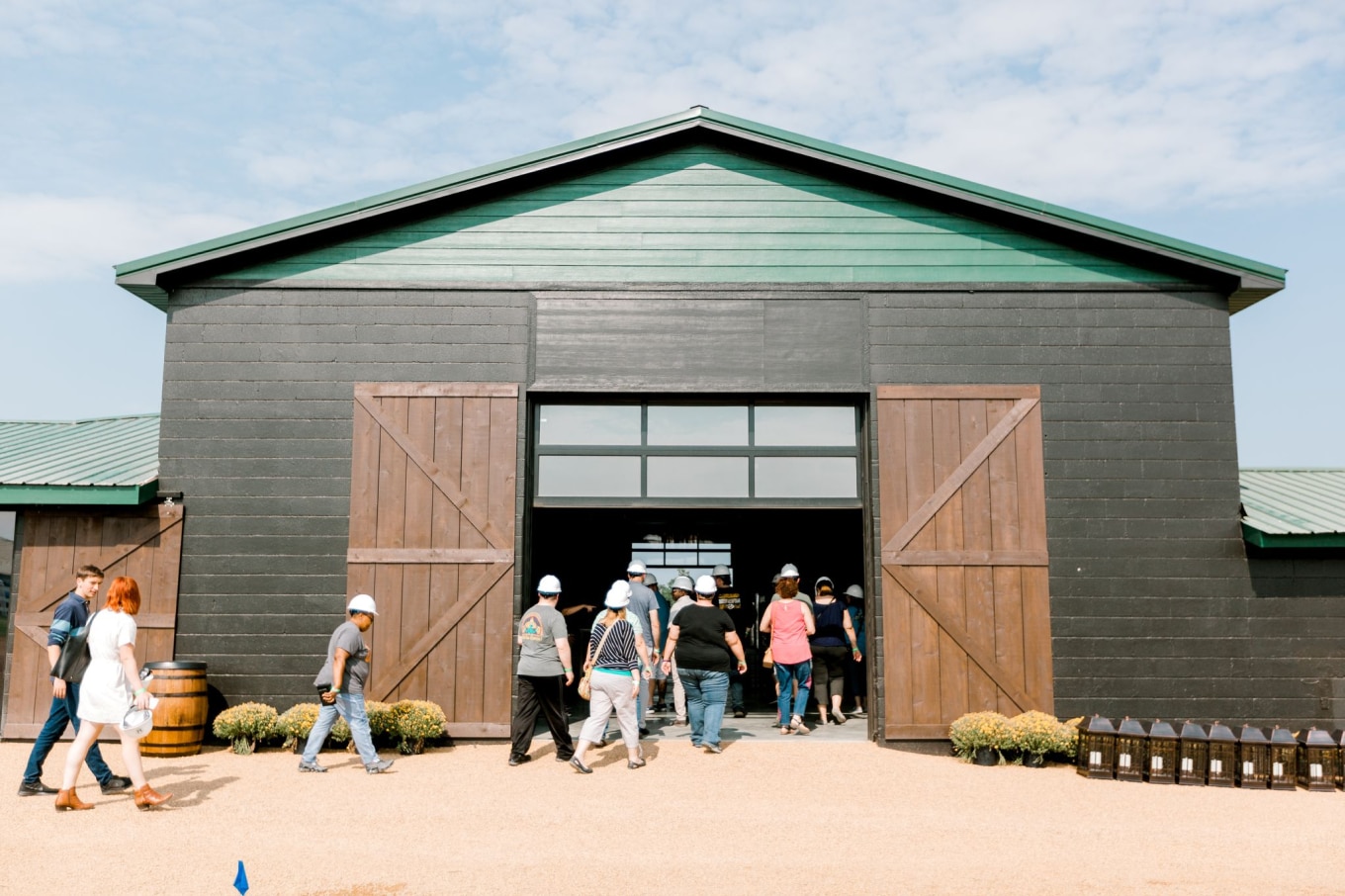
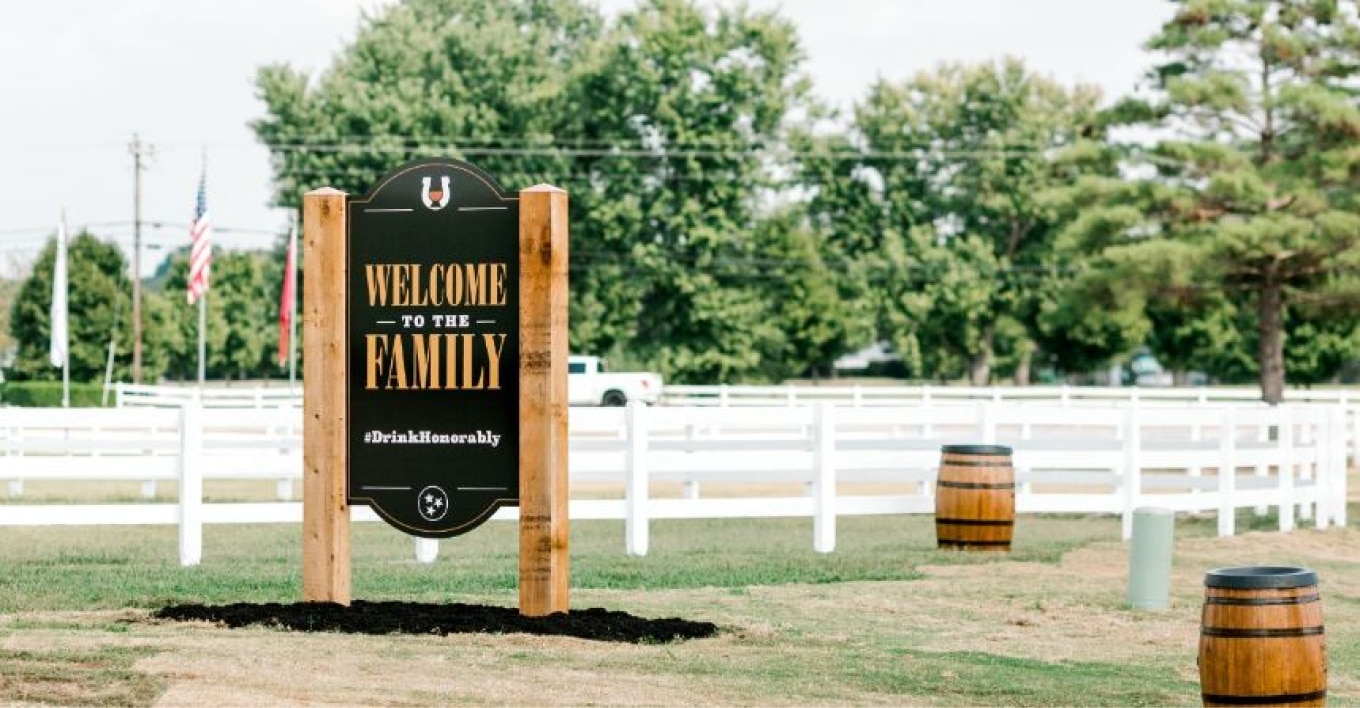
Mastering an Industry
What is your advice to aspiring entrepreneurs?
When I go into an industry, no matter what it is, I learn it frontwards and backwards and speak the same language as those who have been in it for decades. My intention is to master that industry because there's something in every business that’s applicable to another. In everything that I’ve done in my career, I’m utilizing a piece of what I’ve already learned.
What challenges have you experienced in your business?
The greatest challenge is making decisions that can make or break you at any given moment, decisions that impact your team and their families. My decisions affect hundreds of people, so I must be confident in how I proceed, even if it's uncharted territory.
How did you secure investors?
The first round was friends and family, and the second round was also friends and family (laughs). However, I was fortunate that our corporate attorney introduced us to a broker of investors who introduced us to people interested in the project. We leaned into our own network, and then our network led us to more networks of people. It became a snowball effect.
Building a Standout Brand
How did you go about evaluating your competition?
There is no brand or company that is doing what we’re doing, so there was nothing for me to truly evaluate. I believe that a rising tide lifts all boats. When Uncle Nearest came into the whiskey space, we grew the pie and brought in people who were not whiskey drinkers. The traditional American whiskey consumer is 78% white male. Uncle Nearest is 50/50 women and men. We’re helping to grow the overall industry.
How are you building brand loyalty?
People focus on brand loyalty in the wrong places. My goal is to capture the attention of every person who walks by a bottle of Uncle Nearest. We’ve built an active whiskey family online and have one of the most engaged spirit brands. You’d be hard pressed to send us a direct message to one of our social media accounts and not get a response immediately. We’ve truly created a whiskey family.
How did you build a culture within the organization?
We have ten guiding principles that lead everything. If you see any type of job posting, the upper portion of the description features our guiding principles. Every person who is a part of our company has bought into this culture, and we’re taking that culture outside of the company too.
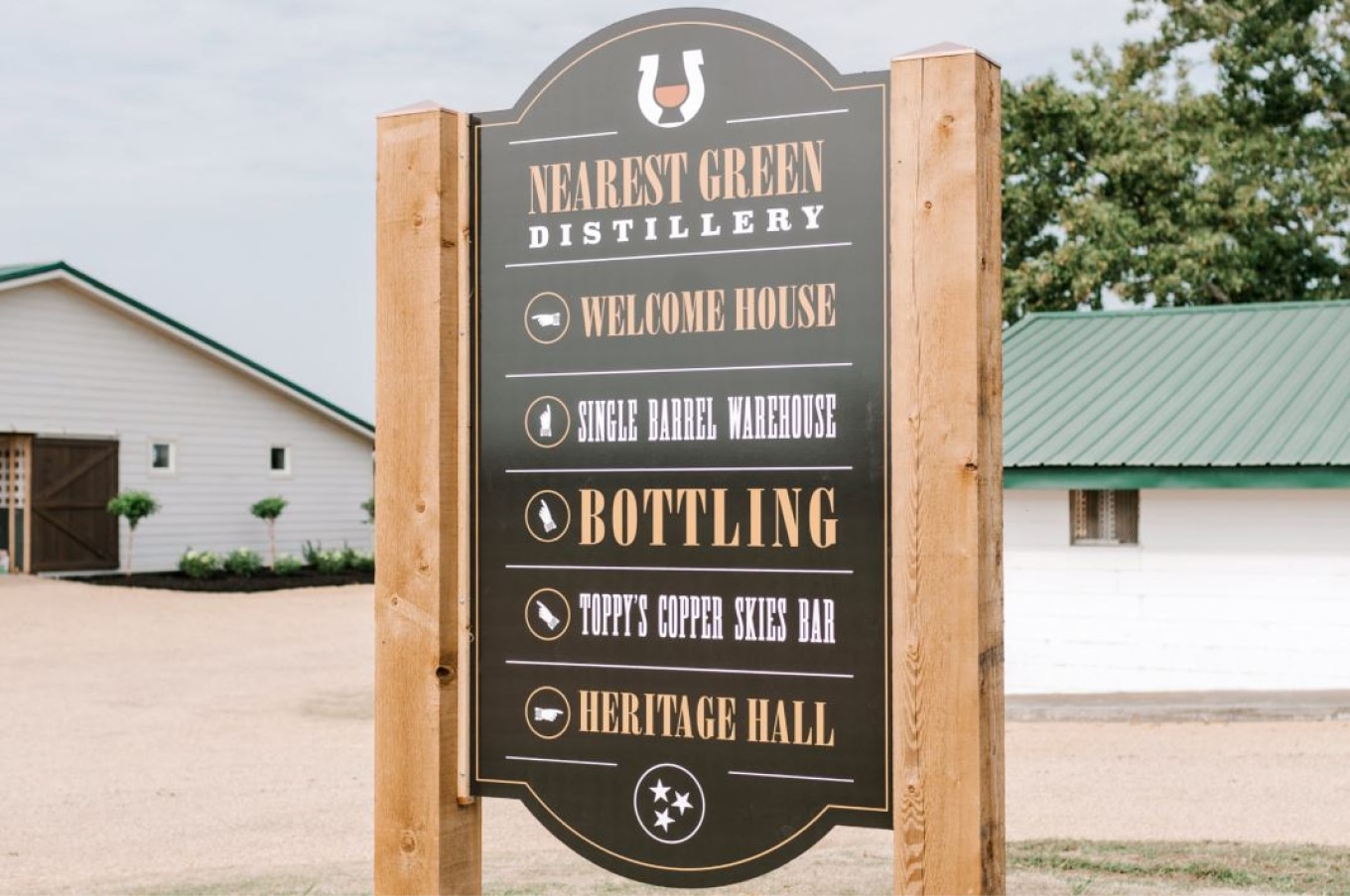
Honoring Legacies
Your father, Frank Wilson, was a Motown songwriter and producer. What lessons did you learn from your dad?
My father was one of the few people in the early days of Motown who kept his publishing rights. Most didn't even know that was possible. Maybe just a few people in those early days negotiated that clause in their contracts. As a young man, my dad knew that if it was his work, he should own it.
How do you feel about carrying the legacy of Nearest Green?
There are certain people in life that are chosen to do certain things. It’s part of their God-given destiny. People give me a lot of credit for being an entrepreneur and building this brand, but I can tell you that too many things in the universe have aligned, and I was present for it. Nearest’s story was meant to be told at this time, and it was meant to be told in this way. For whatever reason, I was the one chosen to do it. I’m grateful and passionate about how I lead this company and grow the brand.
Do you know what ultimately happened to Nearest Green?
We’re not entirely sure. There’s a tall tombstone in Lynchburg that has no writing on it and is surrounded by Nearest’s children, grandchildren, and great-grandchildren. It’s possible this is his burial spot.
However, there’s no tombstone next to him for his wife, Harriett. She appears in the 1870 census with Nearest and 11 children. She’s also in the 1880 census. The 1890 census records were destroyed in a fire, so after that, we lose track. She literally disappeared. I can’t find where she came from or where she goes, and so I’m unable to track Nearest.
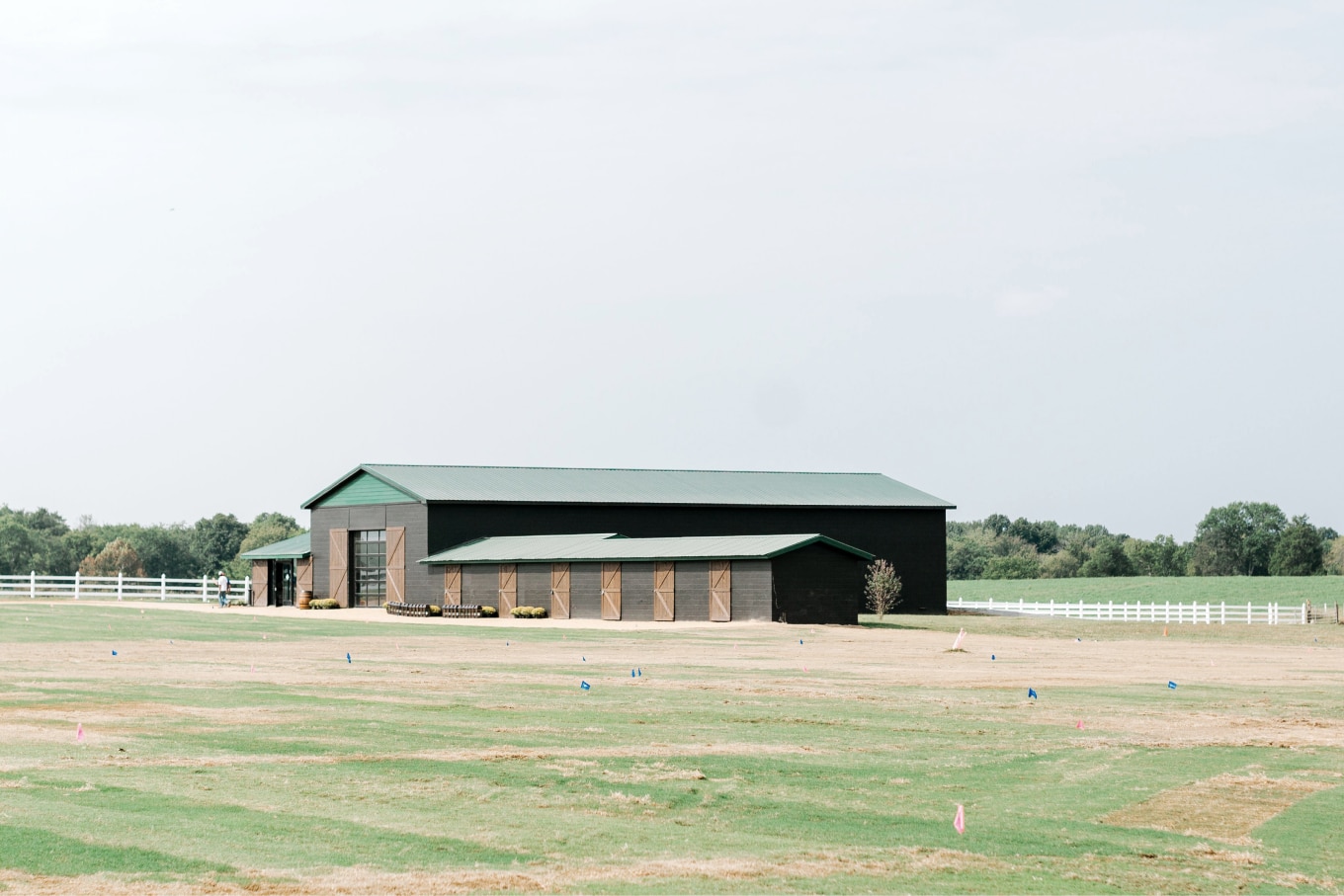
This material is intended for educational purposes only and is provided solely on the basis that it will not constitute investment advice and will not form a primary basis for any personal or plan’s investment decisions. While it is based on information believed to be reliable, no warranty is given as to its accuracy or completeness and it should not be relied upon as such. Information and opinions provided herein are as of the date of this material only and are subject to change without notice. Goldman Sachs is not a fiduciary with respect to any person or plan by reason of providing the material herein. Information and opinions expressed by individuals other than Goldman Sachs employees do not necessarily reflect the view of Goldman Sachs. Information and opinions are as of the date of the event and are subject to change without notice.
© 2025 Goldman Sachs. All rights reserved.
Goldman Sachs & Co. LLC is registered with the Securities and Exchange Commission (“SEC”) as both a broker-dealer and an investment adviser and is a member of the Financial Industry Regulatory Authority (“FINRA”) and the Securities Investor Protection Corporation (“SIPC”).